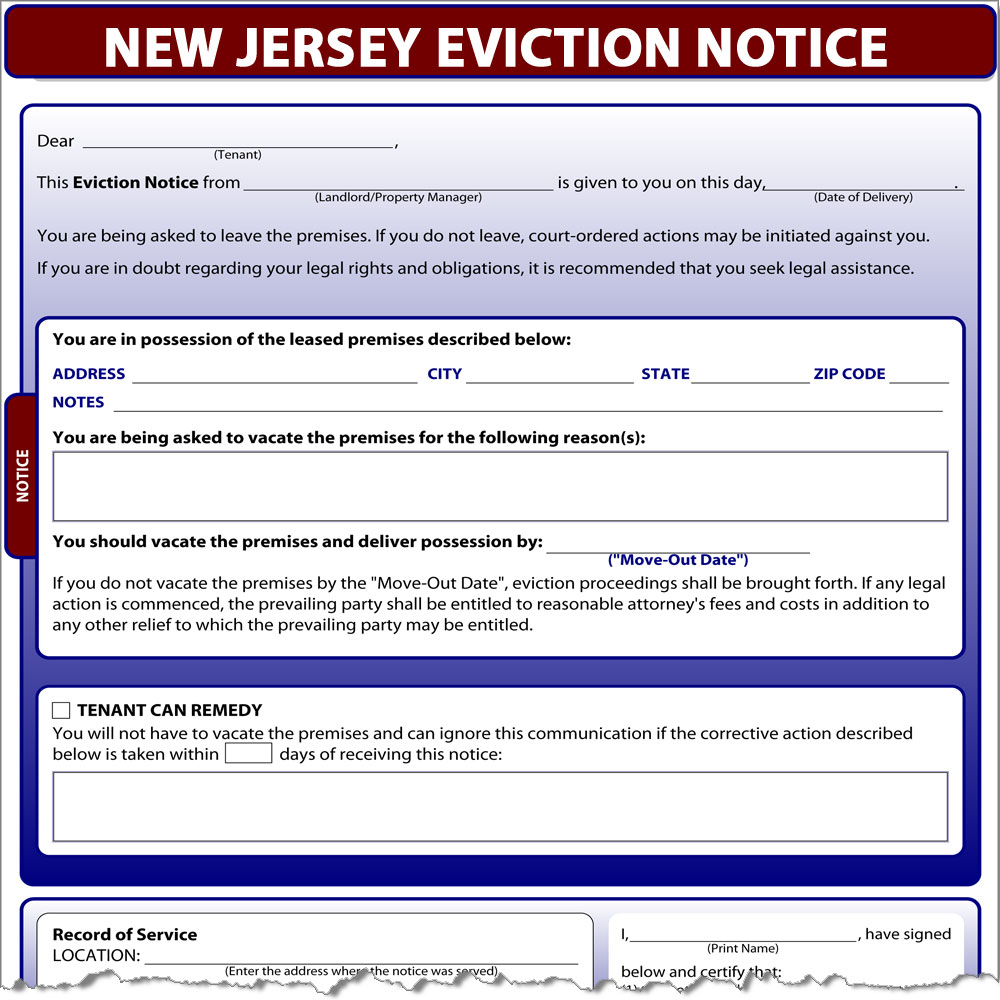New Jersey has a comprehensive group of eviction laws that landlords and tenants must follow when terminating a lease agreement or evicting a tenant. Renting a house is just a two-way street and both landlords and tenants should understand their rights and obligations to stop disputes from escalating into evictions. In this blog post, we shall take a closer look at the new jersey eviction process.

Notice to Quit
The first faltering step in the eviction process in New Jersey is always to serve the tenant with a Notice to Quit. This notice must be in writing and clearly state the reason for the eviction, the date by that your tenant must vacate the property, and the landlord's name and address. The notice period varies depending on the explanation for the eviction, with some reasons requiring only a three-day notice period, while others demand a 30-day notice period. If the tenant doesn't vacate the property by the specified date, the landlord can file an eviction complaint.
Complaint and Summons
After the tenant fails to vacate the property after receiving the notice to quit, the landlord can file an eviction complaint in court. The complaint must state the reason behind the eviction and the amount of rent owed if applicable. After filing the complaint, the landlord must serve the tenant with a summons, including a court date, time, and location.
Appearance and Answer
When the tenant receives the summons, they have five days to file an appearance and answer with the court. The answer must address the allegations made by the landlord in the complaint and any counterclaims the tenant may have. If the tenant does not file a solution, the court may enter a default judgment and only the landlord.
Discovery and Trial
If the tenant files a remedy, the discovery phase begins, where both parties exchange evidence, witnesses, and any relevant information. During trial, both parties present their evidence and arguments before a judge who makes the last decision. If the landlord wins the case, the court issues a Warrant of Removal, and the sheriff can take away the tenant from the property.
Appeals and Mediation
Tenants have the right to appeal a court decision within ten days. If the landlord and the tenant agree, they could undergo mediation to solve the dispute before likely to court. A mediator can help both parties come to a mutually satisfactory resolution.

Conclusion:
Navigating the eviction process in New Jersey could be tricky, but by understanding the steps involved, both landlords and tenants can protect their rights and interests. Make sure to always follow the legal procedures when terminating a lease agreement or evicting a tenant, and seek legal advice if needed. By doing so, you are able to avoid costly disputes and ensure a reasonable and efficient resolution to any problems that'll arise.
